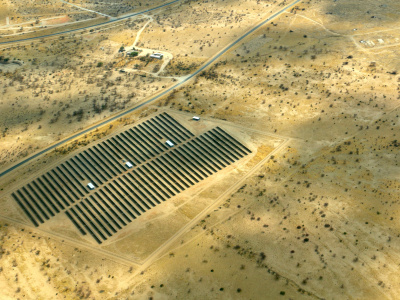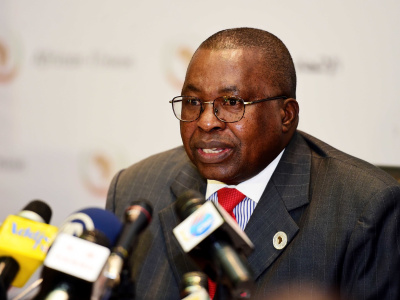
International support for economic reform in Tunisia: can it work with the grain?
The slow pace of reform in Tunisia poses challenges to Tunisia’s international partners who are keen to support the only democracy in the region. While wholesale reforms are more difficult to implement in the current political context, targeting small, incremental changes and promoting "islands of effectiveness" could offer potential for change. The challenge is to find where to start.
As Fidel Castro puts it, “A revolution is a struggle to the death between the future and the past”. Though the Tunisian revolution does not seem in danger of reversal, with widely lauded recent municipal elections, an improving security situation and a generally increasing atmosphere of freedom of expression, it is not clear that ‘the past’ has yet been put to rest. Unemployment still remains stubbornly high, especially among the educated youth, while wide-ranging reforms to address corruption, plug public financing gaps and promote private sector investment still seem hard to put in place.
This is problematic for society at large, but also poses a challenge to Tunisia’s international partners who are keen to support the only democracy in the region. Especially if they seek ways to do so in the areas where there is political traction and some potential for change.
Based on ECDPM’s ongoing work with the EU Delegation in Tunis, this article highlights some key aspects that seem to be important in defining what international partners might do if they aim to ‘think and work politically’ in Tunisia.
Great expectations?
In the battle between the future and the past, a key turning point was clearly the overthrow of the Ben Ali regime in 2011, allowing for political opening and democratisation. Though this is widely seen as important progress, not all expectations have been met.
What sparked the revolution was Mohamed Bouazizi’s self-immolation, leading to a wave of protest about dignity and the need for employment and the right to earn a living. However, as protests spread from rural areas, the demands evolved towards ‘freedom’, as documented by some such as Meddeb or Santini et al. But while the revolution has satisfied the latter demand, “the original issues of dignity and employment still remain central to the challenges being faced in post-revolutionary Tunisia”.
In spite of continuing unemployment and worsening economic conditions, current political debates are clearly dominated by infighting within the ruling party Nidaa Tounes and jostling for position among the two main parties ahead of the parliamentary and presidential elections in late 2019. That is, at the moment political competition seems to be dominating concerns of policy reform and implementation – Tunisia has had seven prime ministers since the revolution. As the IMF put it in April this year, “Political uncertainty can be expected to persist as the country prepares for the upcoming election cycle .” In the current situation, the Head of Government Youssef Chahed lacks support from his own party – that even froze his membership recently – and from President Essebsi, originally from the same party. Instead, for the moment he retains support from Ennahdha, a key member of the governing coalition, with their own sights on the upcoming elections next year. All this seems to reflect high risk political calculus, none of which helps take forward the reform agenda that might lead to more economic stability, investment and employment.
So while the revolution has led to democracy and a previously unheard of openness to political debate, the resulting political competition and uncertainty have so far meant far smaller gains on the social and economic sides. Though frustration may be normal after a revolution, the questions asked are increasingly about how far a vulnerable government can go in pushing reforms that will inevitably affect entrenched interests.
Democracy of the street
In more conceptual terms, the above brief portrait of political competition in Tunisia corresponds with what in Khan’s political settlements framework would be classified as horizontal political competition. Making use of this framework may be helpful in better discerning the incentives (or not) for political elites to design and implement concrete strategies for private sector development and job creation, not to mention public sector expenditure reforms, another area of tension in the current context. The horizontal axis of political competition is complemented by a vertical axis of contestation, reflecting the role of ‘non-elites’. This is more about the degree of support or resistance from those outside the immediate political realms with vested interests or operating in bureaucracies, that shape whether or not governments are able and willing to push through reforms. To illustrate, one IMF report from June 2018 talks of the difficulties of making progress with operationalising a “Large Taxpayers Unit” focused on raising revenues more efficiently through large firms, (a policy move often considered as a ‘quick win’ reform in other countries) due to “political resistance”, understood as resistance from vested interests operating to stall or undermine these reforms.
If the political class are tied up in ‘horizontal’ competition, and implementation of reforms are blocked in the ‘vertical’ relationships with the bureaucracy or wider society, then this can only add to wider frustrations with the gains from the revolution. Santini et al. suggest that “despite the new model constitution and new openness, the political voice in Tunisia has essentially (and historically) come from the streets – protest”. In September, the politically powerful UGTT, the country’s biggest labour union, called for general strikes in protest against the ‘deteriorating political and economic situation’. At the same time, a provocative press article on the ‘reformability’ of Tunisia suggests that reform only genuinely takes place when legitimised in the streets and in the press – without it, they fall by the wayside. And while the UGTT is protesting now, it has also been seen as a blocker to economic reform itself, highlighting how different reforms affect different interests.
Economic exclusion?
Though political power and economic influence are clearly part of the post-revolutionary landscape, this is closely related to the way the economy operates. Tunisia is one of the rare countries where discussion of ‘rents’ and ‘rentier firms’ is in common parlance. Rents are defined as any income earned for a good or activity in excess of that needed to produce it, such as when an industry has a monopoly or operates behind protective barriers that allow it to earn higher profits than it otherwise would. This increasingly open discussion of ‘rentiers’ since the revolution may have been helped by the influential World Bank report from 2014 that establishes a link between the performance of Ben Ali-related firms and fiscal and investment incentives. But even today, much of the discussion on economic reform revolves around the need to reform the rentier economy, with a particular focus on sectors such as real estate, construction, tourism, and some “offshore” manufacturing industries with special conditions – food, electronics, car parts, aeronautics being among them.
The rentier economy is based on protected sectors, subsidised goods, and specific incentives, where the economy meets politics, but also where the wider region comes into play. Much of the economy is increasingly based on informal activity, much of it cross-border trade with neighbouring Algeria and Libya, creating what some see as new elites that therefore need to be taken account of in discussing how to put the economy back on track (even if the analysis is criticised for its elitist interpretation). Add to this the discussions of having the “wrong model” of subcontracting for larger global firms, offering only low-salary work for less educated workers, as well as a focus on agriculture in rain-intensive crops when the country is increasingly water-scarce, and the challenges are vast. Another challenging source of rents is the subsidies on fuel. While the IMF recommended the Tunisian government to drop those, it runs the risk of encouraging the already flourishing illicit imports from Libya where fuels are even more subsidised. Cracking down on this trade is also considered dangerous by some, since it could push informal merchants towards trade in illegal goods such as arms or drugs (e.g. United States Institute of Peace on Tunisia’s Conflict Dynamics, 2018).
What is to be done – going with the grain
In a similar line to the political settlements approach, Levy’s “Working with the Grain” offers suggestions of what to do in response to Tunisia’s situation where political power is contested and rules and laws applied often on a personalised basis. Given the incentives at play, ‘the proposed response is to avoid attempts at wholesale reform and rather focus on small, focused, incremental changes, and promoting “islands of effectiveness” within the government’.
Taking this to Tunisia, one opening may be the startup act, a new law that was adopted in April 2018 to boost the role of science and technology in the country’s economic transformation towards a model of skilled labour and more added value creation than is currently the case. It has been argued that this was the result of a bottom-up, demand-led process (also here), even surviving a change in ICT Minister due to the drive and enthusiasm of a group of more than seventy entrepreneurs. Even if some have argued conversely that this is a ‘sideshow’, from an ‘iterative’ perspective, it may already be positive with the ‘marketing’ of Tunisia already reportedly leading to international attention from investors. More importantly, it reflects how ‘tweaking’ of existing investment laws rather than wholesale reform, while lobbying, explaining and cajoling political and potentially opposing economic actors, has meant that even some of the large conglomerate firms are reportedly starting to realise they could also perhaps benefit somehow.
Though the initial success of the Startup Act does not involve much external support if any, and implementation will be the real test of whether it can have an impact, the lessons from the process may yet be important. Similar processes which mobilise political coalitions around transformational projects should be monitored closely, while keeping in mind that the inclusiveness of such processes can sometimes be a matter of simple show, or ‘signalling’.
Revolutions and their aftermath are inevitably messy, and reforms are always subject to competing interests and concerns. If small, incremental changes are the order of the day, then that at least allows policymakers and their partners to focus on specific areas with potential for impact. Maybe the past never really dies, so the real question is how to shape future initiatives that can adapt to those aspects of the past that won’t go away.
About the author
Bruce Byiers is Head of Regional Integration with the Economic and Agricultural Transformation Programme, ECDPM.
Twitter: @BruceByiers
Read the full magazine issue









